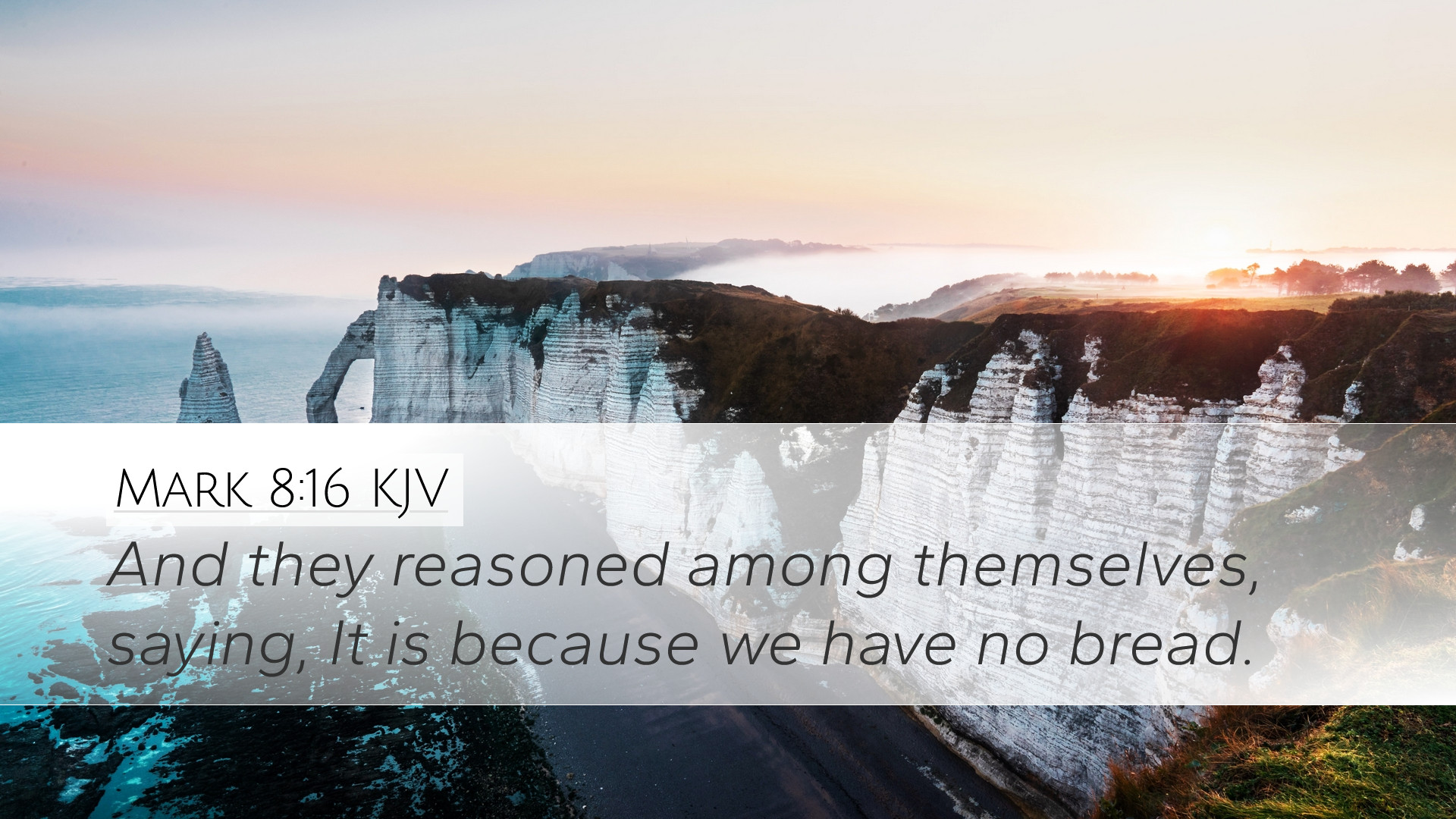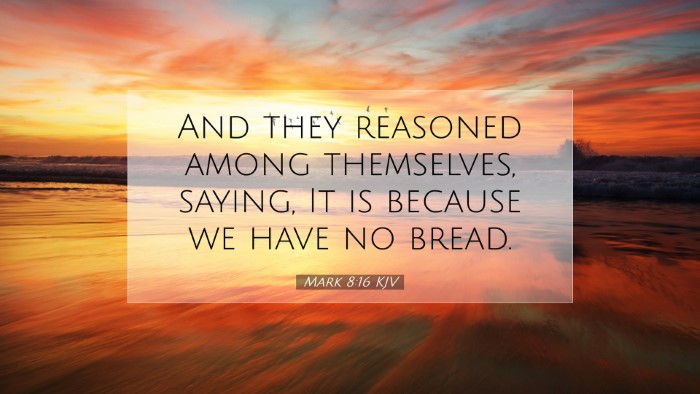Commentary on Mark 8:16
Mark 8:16 states: "And they reasoned among themselves, saying, It is because we have no bread." This verse is part of a larger narrative where Jesus warns His disciples against the leaven of the Pharisees and of Herod. The verse reflects the misunderstanding and lack of perception that the disciples exhibited during this crucial moment.
Contextual Overview
This passage occurs after the feeding of the four thousand and prior to Peter's confession of Christ. Jesus had performed miracles that demonstrated His divine power, yet the disciples struggled to grasp His teachings fully. This situation illustrates the tension between spiritual truth and the disciples' earthly concerns.
Insights from Matthew Henry
Matthew Henry emphasizes the significance of this incident as it underscores the disciples’ spiritual dullness. He notes that:
- Misunderstanding Jesus: The disciples' reasoning reveals a lack of understanding of Jesus’ teachings and the spiritual lessons He imparted. Instead, they divert back to mundane concerns.
- Leaven as a Symbol: Henry explains that "leaven" symbolizes the corrupting influence of the Pharisees, and their earthly thinking prevents them from seeing the miraculous works of Christ.
- Lessons on Dependence: The commentary encourages the faithful to depend on God rather than being anxious over earthly provisions, reflecting a spiritual state of fullness that Jesus provides.
Reflections from Albert Barnes
Albert Barnes provides an analytical approach to this verse, focusing on the disciples' dialogue:
- Human Reasoning: Barnes highlights that the disciples immediately start to rationalize their situation, showing how human reasoning often leads to misinterpretation of spiritual matters.
- Spiritual Blindness: He stresses that the absence of physical bread was inconsequential in the light of Jesus' earlier miracles. The disciples’ spiritual blindness is a critical point, reminding readers that spiritual insight often requires divine revelation.
- Need for Faith: Barnes encourages believers to have faith that transcends physical needs, challenging them to trust in God’s provision rather than worrying about daily bread.
Contributions from Adam Clarke
Adam Clarke's commentary adds depth to the interpretation of this verse by examining the nature of the disciples' reasoning:
- Carnal Mindset: Clarke argues that the disciples' focus on lacking bread reveals their carnal mindset. He articulates that true followers must rise above physical needs to embrace the fullness of Christ's spirit.
- Historical Context: He points out that this was not merely a complaint about bread but a metaphor for their spiritual hunger and misunderstanding of Jesus’ mission.
- Call to Awareness: Clarke calls for believers to remain aware of Christ's sufficiency, asserting that in Him, believers have all they need and should not concern themselves with physical limitations.
Theological Implications
Mark 8:16 serves as a significant teaching moment that invites the reader to reflect on several theological implications:
- Dependence on God: This text reinforces the notion that believers should cultivate a reliance on God's sustenance rather than harboring anxiety over worldly provisions.
- Spiritual Awareness: The repeated theme of seeing and understanding underscores a vital truth: spiritual insight is necessary for a vibrant faith. It beckons followers to seek deeper truths in their walk with Christ.
- Understanding Jesus' Mission: As the disciples grappled with their physical needs, the text invites modern believers to prioritize understanding the mission of Jesus, which transcends their temporal concerns.
Conclusion
The disciples' reasoning in Mark 8:16 encapsulates a common struggle within the Christian faith: the tension between the spiritual and material realms. The insights from Matthew Henry, Albert Barnes, and Adam Clarke converge to offer a poignant reminder of the importance of spiritual perception. Pastors, students, theologians, and scholars should take this moment as an opportunity to challenge themselves and their congregations to move beyond earthly worries, encouraging a reliance on Christ that promises to meet all needs, both physical and spiritual.


